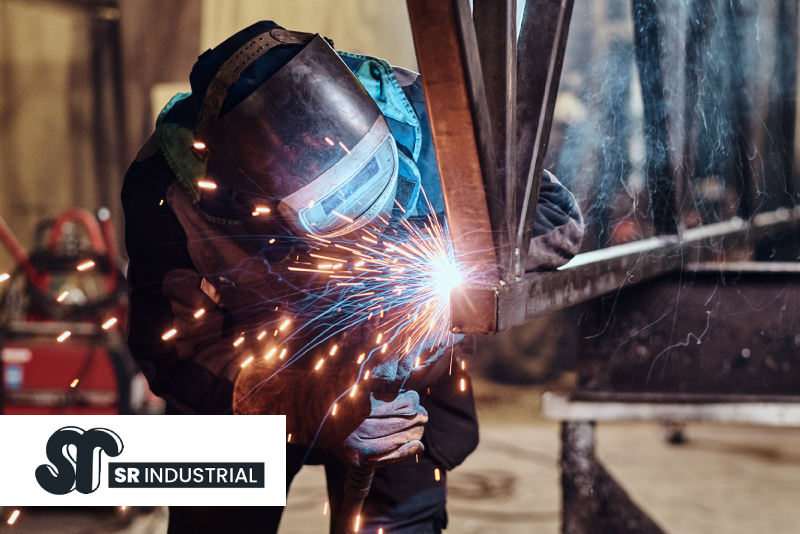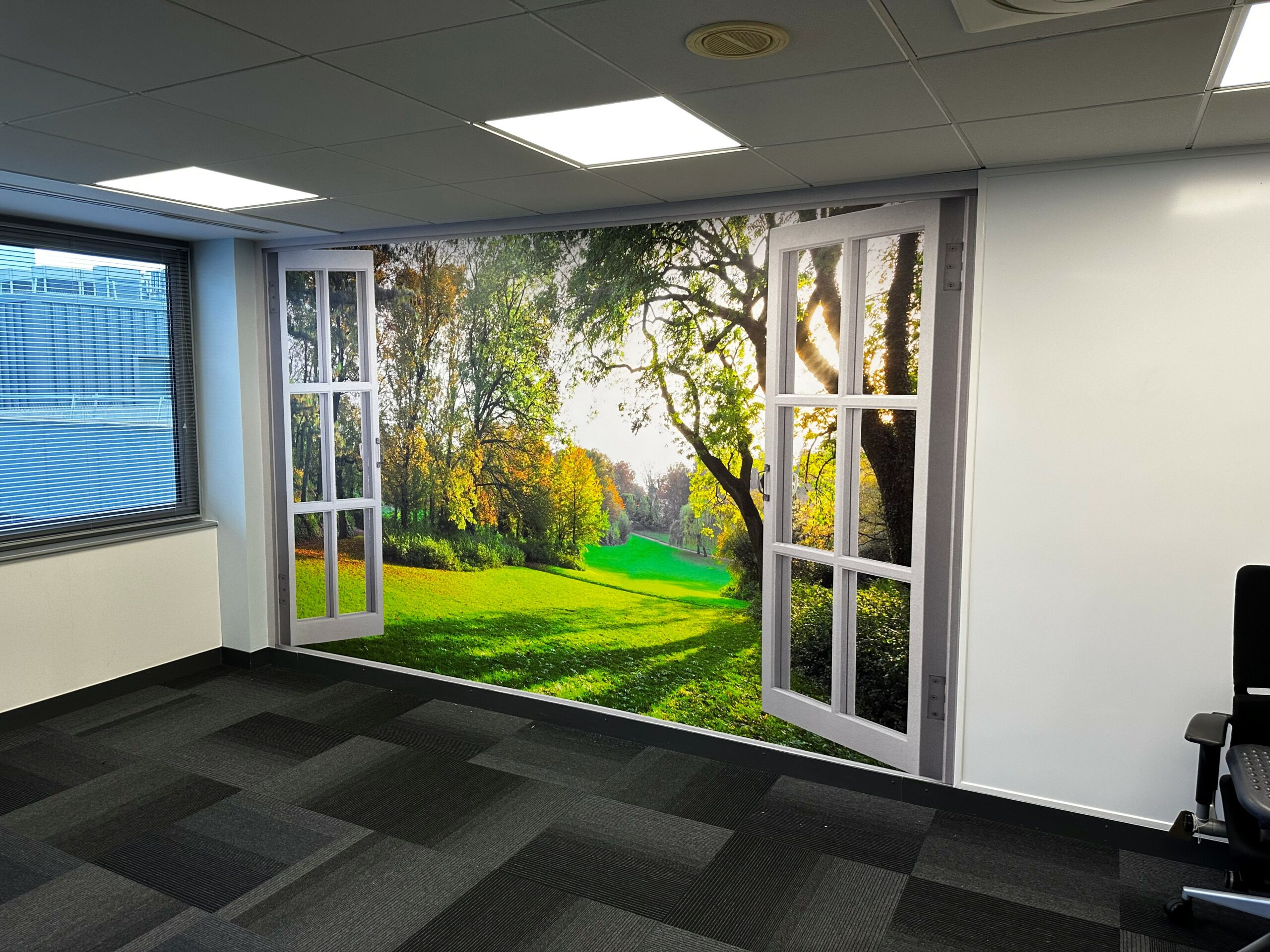The Role of A Metalworker in Commercial Projects

A metalworker plays a crucial role in the world of commercial construction, bringing innovation and expertise to projects of all sizes. Among the leading metalworking companies in the industry is SR Industrial. Our team are renowned for its exceptional craftsmanship and commitment to excellence.
What is a Metalworker?
Metalworkers are skilled professionals who work with various types of metals to create, shape, and assemble structures and components. They possess a unique set of skills and expertise, making them indispensable in the commercial sector.
Defining the Role of a Metalworker
Metalworkers are responsible for working with metals such as steel, aluminium, and brass to fabricate and install structural and architectural elements. Their work includes welding, fabrication, sheet metal forming, cutting, machining, and CNC operations.
Skills and Expertise Required For a Metalworker
Metalworkers need a combination of technical knowledge, manual dexterity, and attention to detail. They must be proficient in reading blueprints, understanding metal properties, and operating specialised tools and machinery.
Types of Metalworker in the Commercial Sector
In the commercial sector, different types of metalworkers specialise in specific areas. Structural steel fabricators handle the assembly of steel frameworks, while architectural metalworkers focus on ornamental and decorative metalwork. Metal cladding and roofing experts specialise in installing metal coverings for buildings.
Metalworking Techniques for Commercial Projects
Welding and Fabrication
Welding and fabrication are fundamental techniques in commercial metalwork, allowing metalworkers to join and shape metal components. Various welding methods, such as Shielded Metal Arc Welding (SMAW), Gas Metal Arc Welding (GMAW), Flux-Cored Arc Welding (FCAW), and Tungsten Inert Gas (TIG) Welding, are employed based on project requirements.
Different Welding Methods
- Shielded Metal Arc Welding (SMAW): Utilises a consumable electrode covered in flux to create an electric arc for welding.
- Gas Metal Arc Welding (GMAW): Involves the use of a continuous wire electrode and shielding gas.
- Flux-Cored Arc Welding (FCAW): Utilises a tubular electrode filled with flux, providing better protection against contaminants.
- Tungsten Inert Gas (TIG) Welding: Employs a non-consumable tungsten electrode and an inert gas shield for precision welding.
Application of Welding in Commercial Metalwork
Welding is crucial in commercial metalwork, ensuring the integrity and strength of structures. Metalworkers use welding techniques to assemble structural steel frameworks, fabricate metal components, and create custom metalwork for architectural features.
Sheet Metal Forming and Cutting
Sheet metal forming and cutting techniques are employed to shape metal sheets for various commercial applications. Metalworkers use bending, folding, stretching, shrinking, roll forming, laser cutting, plasma cutting, and waterjet cutting to achieve desired shapes and sizes.
Techniques for Sheet Metal Forming
- Bending and Folding: Metalworkers utilise specialised machines to bend and fold metal sheets accurately.
- Stretching and Shrinking: These techniques involve manipulating the metal to stretch or shrink it using mechanical or heat-based methods.
- Roll Forming: Metal sheets are passed through rollers to gradually shape them into desired profiles.
Cutting Methods for Sheet Metal
- Laser Cutting: Utilises a high-powered laser beam to cut through metal sheets with precision.
- Plasma Cutting: Involves a plasma torch that generates an electrically conductive plasma jet to melt and cut through metal sheets quickly and accurately.
- Waterjet Cutting: Utilises a high-pressure stream of water mixed with an abrasive substance to cut through various types of metal sheets.
Machining and CNC Operations
Machining and Computer Numerical Control (CNC) operations are vital in commercial metalwork, allowing for precise shaping and finishing of metal components.
Overview of Machining Processes
- Turning: Involves rotating a metal workpiece while cutting tools remove excess material to create cylindrical shapes.
- Milling: Uses rotary cutters to remove material from a metal workpiece, creating complex shapes and profiles.
- Drilling: Utilises specialised drill bits to create holes in metal sheets and components.
Computer Numerical Control (CNC) in Metalworking
CNC operations automate the machining process, enhancing accuracy and efficiency. Metalworkers program CNC machines to execute precise cutting, drilling, and milling operations, resulting in consistent and high-quality metalwork.
Metalworker’s Role in Commercial Construction
Metalworkers play a vital role in commercial construction projects, contributing their expertise and craftsmanship to various aspects of the industry.
Structural Steel Fabrication
Structural steel fabrication is a key area of expertise for metalworkers in commercial construction. From design and engineering to fabrication and assembly, metalworkers ensure the creation of robust steel frameworks that form the backbone of commercial buildings.
Architectural Metalwork
Metalworkers specialising in architectural metalwork bring creativity and precision to commercial projects. They craft ornamental and decorative metalwork, such as railings, staircases, and customised features that enhance the aesthetics and functionality of commercial spaces. Additionally, they excel in the installation of curtain wall systems, which provide both structural support and energy efficiency.
Metal Cladding and Roofing
Metal cladding and roofing offer numerous advantages in commercial construction. Metalworkers skilled in this area provide expert installation of metal coverings, ensuring durability, weather resistance, and aesthetic appeal. Metal cladding and roofing options range from sleek and modern designs to traditional and rustic finishes, adding value and visual appeal to commercial structures.
Quality Assurance and Compliance in Commercial Metalwork
Ensuring quality standards and complying with building codes and regulations are paramount in commercial metalwork projects. Metalworkers prioritise quality assurance to deliver superior craftsmanship and meet project requirements.
Ensuring Quality Standards
Metalworkers implement rigorous quality control measures throughout the fabrication and installation process. They conduct inspections, perform tests, and adhere to industry best practices to ensure that all metalwork meets or exceeds quality standards.
Compliance with Building Codes and Regulations
Metalworkers have a comprehensive understanding of local building codes and regulations related to commercial metalwork. They ensure that all fabrication and installation processes comply with safety and structural requirements, providing clients with peace of mind and maintaining project integrity.
Certifications and Industry Associations
Reputable metalworking companies, such as SR Industrial, hold certifications and memberships in industry associations. These certifications validate their expertise and commitment to adhering to industry standards. Collaborating with certified metalworkers ensures that commercial projects receive the highest level of quality and compliance.
Collaboration and Project Management for Commercial Metalworker
Collaboration and effective project management are crucial in commercial metalwork projects. Metalworkers work closely with architects, designers, and general contractors to ensure seamless execution and successful project outcomes.
Working with Architects and Designers
Metalworkers collaborate with architects and designers right from the project’s conceptual stage. By understanding design intent, they provide valuable input and technical expertise to help translate creative visions into functional metalwork solutions.
Coordinating with General Contractors
Metalworkers play a crucial role in coordinating with general contractors throughout the project. They collaborate on project scheduling, material procurement, and on-site coordination to ensure smooth execution and timely completion. Metalworkers work closely with contractors to address any challenges or modifications required during the construction process.
Project Planning and Execution
Metalworkers contribute to project planning and execution by providing valuable insights into the feasibility and practicality of metalwork designs. They assist in determining the most efficient fabrication and installation methods, considering factors such as budget, timeline, and project specifications. Metalworkers work closely with project managers to ensure that metalwork milestones align with overall project milestones.
Future Trends and Innovations in Commercial Metalworking
The field of commercial metalworking is constantly evolving, embracing new technologies and sustainable practices to meet the demands of the future.
Advancements in Materials and Alloys
Research and development in the field of metal alloys are driving advancements in commercial metalworking. New materials with enhanced strength, corrosion resistance, and lightweight properties are being introduced, allowing for more efficient and sustainable construction practices.
Automation and Robotics in Metalwork
Automation and robotics are revolutionising the metalworking industry. CNC machines equipped with advanced robotics systems can handle complex metalwork tasks with precision and efficiency, reducing labour-intensive processes and increasing productivity.
Sustainable Practices for a Commercial Metalworker
Sustainability is a growing concern in the construction industry, and metalworking is no exception. Metalworkers are adopting sustainable practices, such as recycling scrap metal, optimising material usage, and utilising eco-friendly coatings. These practices contribute to reducing environmental impact while maintaining the highest standards of quality and durability.
Conclusion
Metalworkers are indispensable contributors to commercial construction projects, bringing their expertise, creativity, and precision to every aspect of metalwork. SR Industrial, a leading metalworking company, exemplifies the commitment to excellence and innovation in the industry.
As commercial construction continues to evolve, metalworkers will play a vital role in shaping the future of architectural and structural metalwork, ensuring the creation of functional, aesthetically pleasing, and sustainable commercial spaces.


